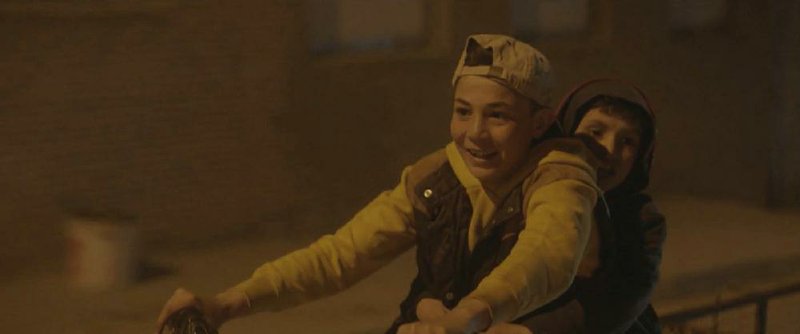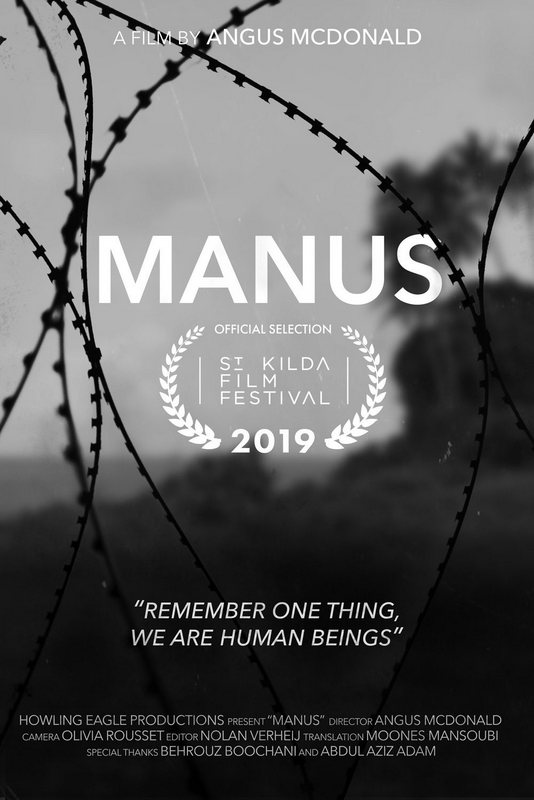Lieke Bezemer’s short film Echo touches on the directors own personal trauma which arose from her experience with Sexual Abuse. The short has been recently screened at the Manchester Film Festival. The short tackles a powerful, quite often stigma filled topic. We have been extremely lucky to have a chat with the director and learn how did the short film Echo came to life.
Your short film “ECHO” touches on your own personal trauma from experience with sexual abuse. Was that the driving force to create “ECHO”?
“The whole reason I needed to make ECHO was because I missed a film like this in my own healing process. When I got diagnosed with PTSD, it was so hard to wrap my head around what that actually meant. Was I losing my mind? As I still do now, I turned to art to find answers. However, I found that PTSD in art is represented in the darkest ways. Sketches of ghost and monsters showed me a lot of people go through this, but I also learned that PSTD is this demon living inside of me. A demon that I now know, was never there to hurt, but to protect. A natural process visualized in such a haunting way did not help in understanding myself at all. If you do not understand your trauma, it is easier to just deny it. With ECHO we wanted to confront, without being destructive. We wanted for it to do all of those emotions justice, but focussing on the natural process rather than those demons. It takes confrontation to acknowledge your trauma, in order to then heal. This is what the film did for me, and I know this is what it can do for others as well.“
How important was the landscape and natural elements in amplifying the message? From a cinematic perspective, was a cold unforgiving environment the only way to help the spectator better understand the gravity and seriousness of sexual trauma?
“The snowy landscapes are not the only way of translating sexual trauma to the screen, but it was the most suiting one for me. Nature is where I feel safe and where I heal. Nature is also all about survival. It is harsh and unforgiving, but without overdramatizing. I spent a lot of time finding a suiting micro-cosmos to visualize the invisible, since I knew fairly quickly that I did not need people to tell this story. In the years after the sexual abuse, I would slip in and out of this state of dissociation, where the mind goes blank and feelings go numb. When I found photos of the snowscapes in Hokkaido, the most otherworldly and abstract landscapes I had ever seen, I knew instantly that that was the place. The emptiness and stillness of the world there, with occasional hints of what is buried under that deep snow – nowhere in this world ever came this close to the one I was living in, inside my head. By linking trauma images that are (somewhat) recognizable, we make the unseeable understandable. By using the landscapes, we do not just create a world – we create a reality. Something that was once so deeply hidden is now unavoidably real. Confrontational for sure, while still abstract and open to interpretation.“
The combination of your photography experience, passion for nature and the poetic delivery creates a very unique and almost auteuristic style of filmmaking, will you be carrying this approach into the future?
“I think the style of this film reflects who I am as a director and as a person. Nature is part of who I am, and filming hidden and meaningful stories is what I am dedicating my life to. ECHO is my preferred style and I will definitely take this approach with me. However, every story and subject matter deserves its own unique process. Right now, I’m working on a new film that will almost be a sequel to ECHO. Where ECHO was about confrontation and survival, my new film NOWHERE (working title) will focus on healing and letting go. Experiencing the here and now, instead of being stuck in the past and fearing future. Nature, again, will carry most of the narrative here. It is the connection felt with nature that will heal more than any shrink ever will. And it is that connection with nature, needed for us to feel responsible to take care of her, too.“
The short film has a very poetic feel to it. However, it shows the complicated reality of the complex aftermath of trauma that sexual abuse leaves. Do you hope that ECHO will encourage a conversation of sexual abuse and the damage it does as well as to break down the stigma it quite often come with?
“That would indeed be the ultimate goal. This conversation is essential, as sexual abuse more often than not stays a secret. Secrets will not heal anyone. As I have experienced myself, starting the conversation about this topic and opening up to the people around you is extremely difficult. However, joining a conversation that has already been started is a lot more inviting. ECHO takes the responsibility of starting the conversation which, for too many, is simply impossible to initiate. The film provides visual tools to talk about the experience of trauma, thus making it communicable to yourself, your loved ones and the world.“
What was important for you to focus on or highlight when making ECHO?
“For me, it was most important to find a deeper understanding for myself and to acknowledge what had happened to me. To reflect on how my sexual abuse influences me, and to discover that my PTSD is not demonic: it is a natural process. An extremely intense natural process – but nothing more, and nothing less.“





